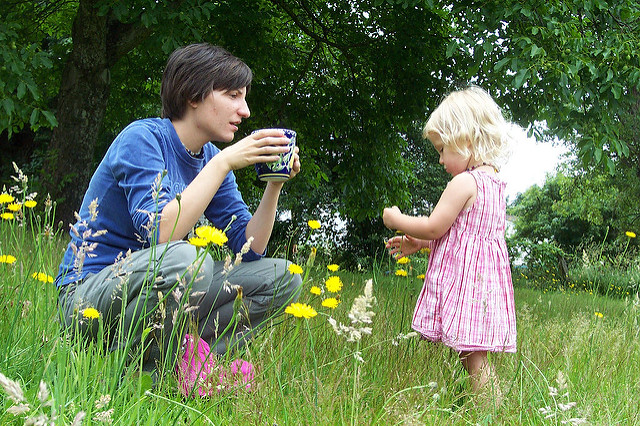
I’ve always shrunk from the word duty.
The word for me conjures up a series of negative and heavy emotions—the type of emotions that weigh you down and fuse you to the ground.
As soon as I hit my adult years I spurned the concept; I was now free to live my life footloose and fancy free, without any obligations. Many would agree: duty could only really mean effort, exertion, and the hard slog.
In the twenty-first century we shirk the notion of burden, we spurn it. We want to be living flagrantly, not hammered down to the post, not existing with the weight of duty and obligation on our shoulders.
Duty conjures up the vision of the Greek God Atlas, bent kneed, and curved spine, as he carried the weight of the world upon his shoulder. No thank you! We cry, hands in the air, unwilling to leave the smallest of fingerprints.
It’s curious how the concept of duty has changed over the centuries. People once talked about a “sacred duty,” whether it was following your master or cause into battle, or simply tending the fields of a family estate. It was our duty, our place within society, and there was a sense of pride associated with that concept too—the notion that we were fulfilling our “sacred duty.”
Not anymore! I’ve spent a lifetime shrinking from perceived duties, whether it be ensuring I bought an apartment with no garden, so it wouldn’t be my “duty” to tend to the plants, or avoiding life predicaments where I would be bound to someone or something, forced to undertake any sort of “obligation.”
Conversely it was through duty that I found my very person. It was only after I had my first baby that I discovered what a sacred duty really was, and what a privilege and honor it was to care for this tiny soul. In no way did it hold me back in shackles, instead it freed me, and allowed me to express my most creative self. In caring for another human being, I discovered my own person.
I once heard a Lena Dunham quote about the burden of rearing children, and how she was concerned that if she were to have a baby, she might feel recrimination towards the child because she could no longer live her life in the freest and most creative way possible. I guess that was my concern too. Wouldn’t I prefer to be reading a book or writing or even just going to a fancy dinner rather than caring for a child? Would I inevitably blame this child for the loss of my free time and energy? They were all thoughts that coursed through my mind. Altruism and selflessness have been lost somewhere along the way.
But what if they are the very key to our happiness? To being able to live a full and contented life?
A while back a yoga teacher of mine spoke about duty. It was in reference to our dharma. In Hinduism dharma refers to the law that governs the universe, our personal conduct and the essential function or nature of a thing. It also refers to the sacred duty we need to play within society. I didn’t like the idea back then—my heart has always lent towards the revolutionary, the rebel, and I couldn’t fully comprehend the notion of having some large-scale obligation to make to society.
Now I realise I had it all wrong and that many of us have it all wrong. Our modern day conception of duty is at direct loggerheads with our modern day concept of happiness—which is hedonic in nature. Today we think of happiness as a fleeting emotion. A moment of pleasure, perhaps a moment of fulfilled desire. Happiness is gleeful, joyful, ecstatic, quick and fast. There is an ephemeral quality to it that lifts you up rather than tying you down—and duty is quite the opposite.
In effect, we shrink from our so called duties. We fear them. We fear the concrete choice, the need to stay and fulfill something, and the potential sacrifice we might need to make to accomplish said duty.
What’s in it for me? How will this further me? What will I get out of it? Will it make me happy? You might surmise that you’ll unlikely be happy as a result of conducting your duty, because it’s selfless not self serving.
Contrary to this thinking, I can tell you that duty, obligation, is one of the key ingredients for happiness. Albert Camus wrote:
“If you want happiness for an hour—take a nap.’
If you want happiness for a day—go fishing.
If you want happiness for a year—inherit a fortune.
If you want happiness for a lifetime—help someone else.”
Yes, if you are seeking lasting happiness, you might need to seek duty not shrink from it. Most contemporary happiness studies show that duty is very much part of leading a happy life. In the 100 simple secrets of Happy People, David Niven writes:
“Giving help is a win-win situation, so take the time to pay attention to your surroundings and offer the help that you can. It could be as simple as making a habit of holding the door open for the person coming in behind you. It’s a gesture of friendliness and makes another person feel better and makes you feel good about yourself.”
Niven goes on to quote a study conducted by Williams, Haber, Weaver and Freeman in 1998 on happiness, “Life satisfaction was found to improve 24 percent with the level of altruistic activity.” Duty and altruism often sit hand-in-hand.
That’s a whole quarter of your happiness level advanced by living in an altruistic, duty-bound manner. Mackay similarly writes (The Good Life, 2013):
“The history of the human race tells us that communities survive when the cooperative aspects of our nature prevail. Having evolved as social creatures who typically thrive in familial and other communal groupings, we are born to relate to each other and to foster communities by acknowledging and responding to each others needs.”
Most ancient wisdom and spiritual teaching would also indicate that living with a sense of duty, purpose and altruism will lead towards a greater sense of fulfillment.
My daughter taught me that duties can be sacred. She taught me that selflessness and care for another human being in particular can be a beautiful thing. It creates a sense of interconnectedness, from myself to her, but also myself to greater humanity. Those that have come before me and will come after me. It reinforced my every day humanity—often lost in a modern society. Somehow it made me real, concrete, whole and happy.
It took a long time to realize that my duty was indeed “sacred” and that helping others and conducting my own civic duty not only imbued me with a sense of happiness but also made me feel complete—the human being I wanted to be. So don’t be afraid of duty. Make it your friend instead.
~
Author: Lisa Portolan
Editor: Travis May
Photo: Flickr/Gerry Thomasen






Read 0 comments and reply